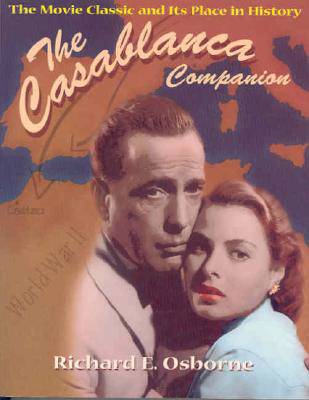
- Afhalen na 1 uur in een winkel met voorraad
- Gratis thuislevering in België vanaf € 30
- Ruim aanbod met 7 miljoen producten
- Afhalen na 1 uur in een winkel met voorraad
- Gratis thuislevering in België vanaf € 30
- Ruim aanbod met 7 miljoen producten
Zoeken
€ 26,45
+ 52 punten
Omschrijving
The classic movie "Casablanca" is a WW II story, made during WW II for WW II audiences and is loaded with very accurate WW II history which is fully explained in this book. You will learn the actual calendar days of the events in Casablanca and Paris - why Rick couldn't return to America - why there were Germans in Casablanca - and whether or not there was an actual document known as a "letter of transit." You will learn such things as how Rick ran guns to Ethiopia - what he did while he was fighting for the loyalist in Spain - and what mysterious activities he was up to in Paris. The reader is also informed as to why it was difficult for refugees to get out of Casablanca - why they wanted to go to Lisbon - who the "devil" was in Bulgaria that the Bulgarian woman spoke of - what were the Bulgarian couple's chances of reaching America - the significance of Ilsa and Berger being Norwegians - and the differences between the Vichy French and the Free French... and more.
This book fully explains words and phrases used in the movie such as "Vichy" - "Clipper to America" - "the Angriff" - "Brazzaville" - "second front" - "French 75." Explained, too, are several historical errors in the movie, acting and photography "glitches" and bits of the Warner Brothers' political philosophy worked into the movie.
The final chapters of the book detail the experiences of the various participants in wartime Hollywood and wartime problems in making the movie.
This book fully explains words and phrases used in the movie such as "Vichy" - "Clipper to America" - "the Angriff" - "Brazzaville" - "second front" - "French 75." Explained, too, are several historical errors in the movie, acting and photography "glitches" and bits of the Warner Brothers' political philosophy worked into the movie.
The final chapters of the book detail the experiences of the various participants in wartime Hollywood and wartime problems in making the movie.
Specificaties
Betrokkenen
- Auteur(s):
- Uitgeverij:
Inhoud
- Aantal bladzijden:
- 276
- Taal:
- Engels
Eigenschappen
- Productcode (EAN):
- 9780962832437
- Verschijningsdatum:
- 18/09/2006
- Uitvoering:
- Paperback
- Formaat:
- Trade paperback (VS)
- Afmetingen:
- 199 mm x 271 mm
- Gewicht:
- 802 g

Alleen bij Standaard Boekhandel
+ 52 punten op je klantenkaart van Standaard Boekhandel
Beoordelingen
We publiceren alleen reviews die voldoen aan de voorwaarden voor reviews. Bekijk onze voorwaarden voor reviews.











